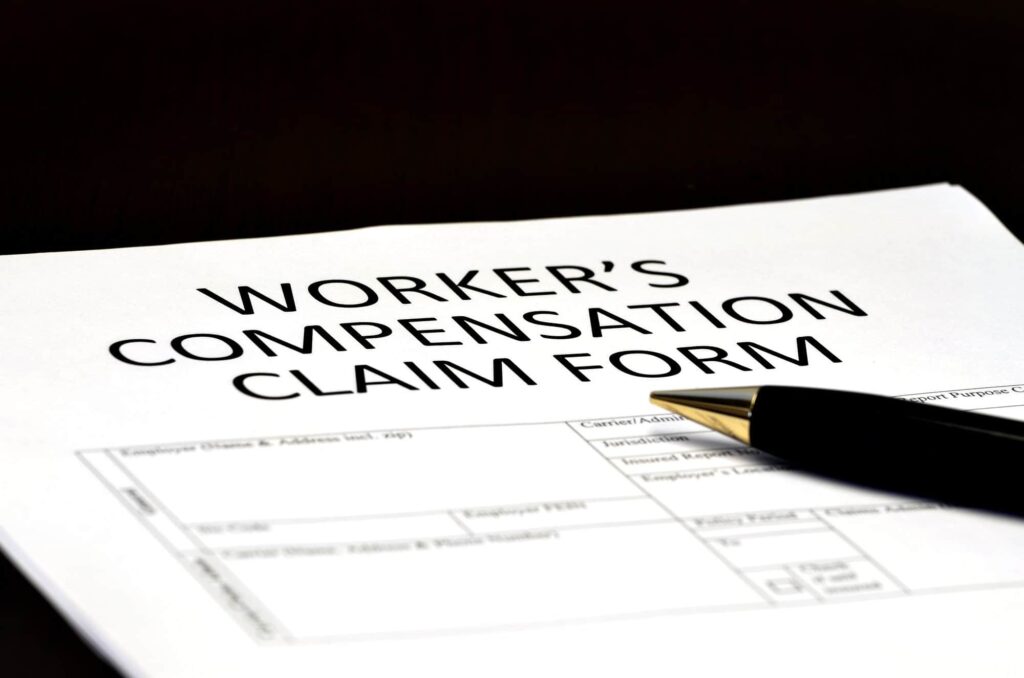Over four million employees get injured on the job each year. Sprains, soreness, and cuts are among the most common types of work-related injuries.
Most injuries that occur on the job qualify for some kind of workman’s comp. These include trauma, injury, and diseases. When you get injured at work, you may be entitled to some medical coverage, wage replacement, and benefits.
How do you file a workers compensation claim? Let’s take a look.
1. Who Can File a Claim?
Workman’s comp insurance was designed to protect the employee from the devastating effects of job-related injuries. It also protects employers from potentially crippling lawsuits. Workman’s compensation might cover medical costs, lost wages, ongoing care costs, and funeral costs.
In order to file a workman’s comp claim, a worker needs to be an employee of the company. They cannot be an independent contractor.
The employer needs to have workman’s comp insurance. The employee needs to have gotten injured as a result of a job-related injury.
Workman’s comp insurance does not cover domestic employees or volunteers. Special laws apply to seasonal workers or employees of temp agencies. A worker’s compensation lawyer can help you sort out the details.
Any falls that occur on your job, chemicals you may get exposed to, or gradual injuries, such as carpal tunnel, may qualify for workman’s compensation.
Workman’s comp does not cover any self-inflicted injuries or any injuries caused by fighting or horseplay. You cannot file a claim if you were under the influence of drugs or alcohol at the time of your incident.
You are not eligible for a claim if you got injured while violating company policy. Workman’s comp does not cover emotional damages, such as stress or depression.
2. Who Has Workman’s Comp?
Most states require businesses to carry workman’s comp insurance. New Jersey and Texas are exempt.
Companies may choose to use private insurance companies or state-funded programs. Only North Dakota, Washington, and Wyoming require companies to use state agencies. Larger companies, such as government agencies, may choose to insure themselves.
3. How Do I File A Claim?
An employee should report an injury as soon as it occurs. Each state has its own requirements in terms of the amount of time an employee has to report an injury. In New York, for example, it is thirty days.
After you have told your employer about the injury, you can begin filing a claim. Again, each state has different rules as to how long after the incident you are allowed to file.
Before filing a claim, you will need certain information. You will need to obtain your company’s insurance policy number.
You will also be required to supply your own social security number, name, date of birth, age, address, and phone number.
You will need to supply the details of your accident before you file. You should start with the date and type of injury. You can also supply any estimated needed time off, your expected return date, and the names of any witnesses.
The insurance company will then choose a doctor to conduct an Independent Medical Examination (IME.) The doctor will report their results to the insurance company.
The company will then use the report to create its compensation offer. For cumulative injuries, compensation is a little grayer.
For example, you may develop carpal tunnel from typing on the job over a period of several years. Your time may begin on your first day off from work, or when you first knew you needed to take time off.
Workman’s comp claims vary from state to state. Parties involved include the employer, the employee, the insurance company, the doctor, and the workman’s compensation board.
4. What Kind of Compensation Can I Get?
The type of compensation you will receive will depend largely upon the type of injury you sustained. If your workman’s compensation claim is open, the types of benefits you receive regularly will depend upon your ability to return to work in some capacity.
For example, if your injury resulted in some type of permanent impairment, you are entitled to a monetary reward. If you needed surgery, you will likely get entitled to a permanent disability reward. You can also get permanent disability if your injury limited the kind of work you can do.
You will receive time-loss compensation benefits if you had to take time off from work due to your injury. Time-loss compensation benefits are usually paid twice a month. You may, however, get paid once a month, or once a week.
Loss of earning power benefits apply to those who need to return to work in a lower-paying job. Your employer will pay you some of the difference between your former salary and what you are now earning.
A pension can be given to a worker who is completely disabled as a result of their injury. This means the employee cannot return to work as a result of an injury, illness, or disease.
A pension gets paid periodically. It could be once a month, twice a month, or once a week. Pension benefits may last a lifetime.
If you need more compensation than you are being offered, it may be time to contact a workman’s compensation lawyer. Many offer free consultations.
After you give your lawyer the details of your case, they may be able to let you know if it is worth it to pursue legal action.
Filing A Workers Compensation Claim
You will need to gather the details of your accident before filing a workers compensation claim. With the right attention to detail, you can receive compensation for time lost, medical bills, and changes in your professional prospects.
For more information, contact us today.
